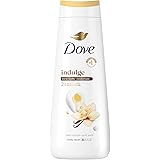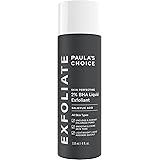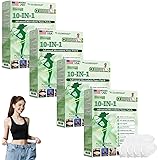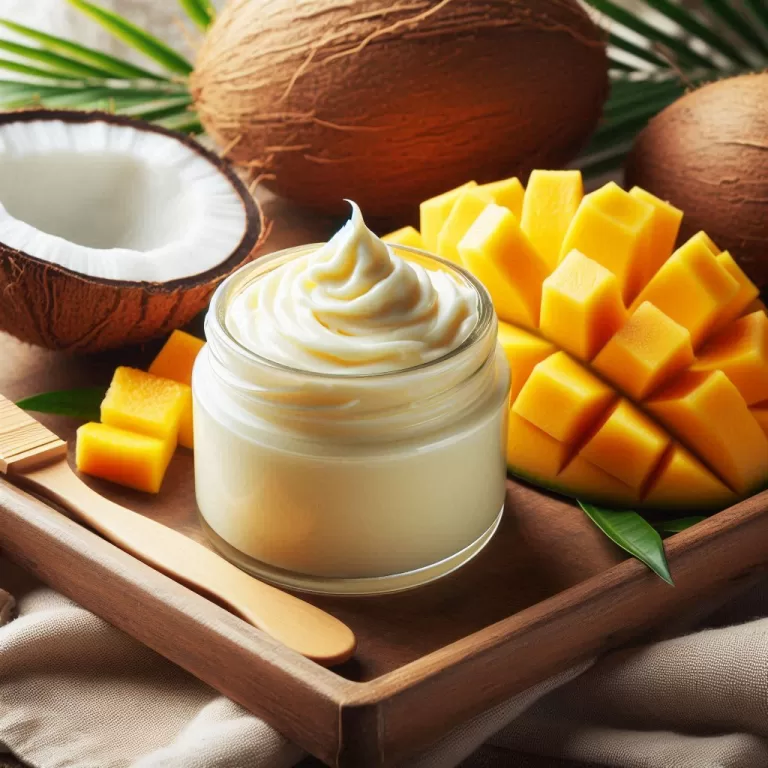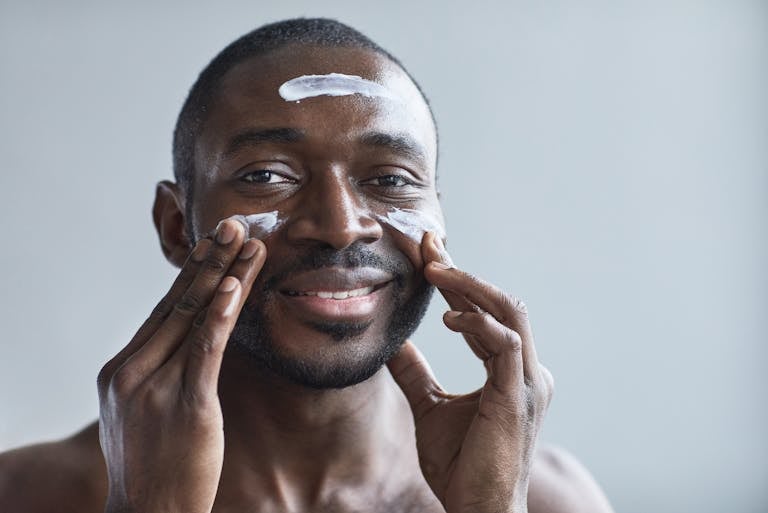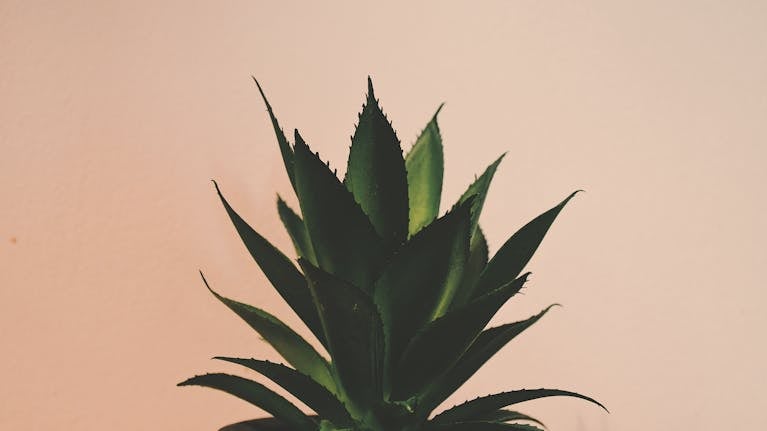Top 10 Essential Oils for Skincare: How to Use Them Safely [Updated 2024]
Are you tired of endless skincare routines that don’t deliver results? Skincare enthusiasts are turning to essential oils for their natural, effective benefits. This trend is more than a fad; it’s a revolution in how we treat our skin. Essential oils for skincare can transform your routine, offering everything from hydration to anti-aging properties.
In this post, we’ll explore the top 10 essential oils you should consider for your skincare regimen. You’ll learn how to use them safely and effectively. Get ready to elevate your skincare game with these natural wonders. Don’t forget to sign up for our newsletter to stay updated with more skincare tips and trends!
What Are Essential Oils?
Essential oils are natural compounds extracted from plants. They capture the plant’s scent and flavor, also known as its “essence.” Each essential oil holds unique properties based on the plant it’s derived from, offering various benefits for health and wellness. But, have you ever wondered how these fragrant oils can benefit your skin?

The Basics of Essential Oils
Essential oils are extracted using methods like distillation (steam and/or water) or mechanical methods, such as cold pressing. Once the aromatic chemicals have been extracted, they’re combined with a carrier oil to create a product that’s ready for use.
- Distillation involves steaming the plant parts to release the essential compounds.
- Cold Pressing squeezes oils out of citrus peels.
The result is a highly concentrated oil that carries the essence of the plant, including its scent, and its beneficial properties.
Why Are They Popular in Skincare?
Essential oils have surged in popularity in the skincare world due to their natural properties. They are packed with antioxidants and possess anti-inflammatory, antibacterial, and antifungal properties, making them a versatile addition to any skincare routine.
Some common benefits include:
- Moisturizing Skin: Essential oils like lavender and rose can deeply hydrate the skin.
- Reducing Anxiety: Oils such as chamomile and jasmine are known for their calming effects.
- Fighting Acne: Tea tree and peppermint oils have antimicrobial properties that can help reduce acne.
Popular Essential Oils for Skincare
Here are a few oils that are especially notable for skincare:
- Lavender Oil: Known for its calming properties and ability to reduce redness.
- Tea Tree Oil: Excellent for acne-prone skin due to its antibacterial effects.
- Rosehip Oil: Packed with vitamins and antioxidants that help with anti-aging.
How to Use Essential Oils Safely
Using essential oils safely is crucial to reap their benefits without experiencing adverse effects. Here are some key tips:
- Dilute Properly: Always mix essential oils with a carrier oil like coconut or jojoba oil to avoid skin irritation.
- Patch Test: Apply a small amount on your wrist or elbow to see if you have a reaction before using extensively.
- Avoid Sensitive Areas: Keep essential oils away from sensitive areas such as the eyes, ears, and broken skin.
For more detailed information on safe essential oil usage, refer to this guide.
Conclusion
Essential oils can be a game-changer in your skincare routine, but it’s essential to use them correctly to maximize their benefits. Remember to always use them responsibly and consult with a professional if you’re unsure. Want more skincare tips and tricks? Be sure to sign up for our newsletter for the latest updates on skincare and wellness.

Benefits of Essential Oils for Skincare
Essential oils aren’t just for aromatherapy. They offer numerous benefits for your skin. When used safely and properly, essential oils can improve your skin’s texture, tone, and overall health. Here’s a closer look at some of the key benefits.
Hydration and Moisturization
Essential oils can hydrate and moisturize your skin. Oils like jojoba and rosehip are especially effective. They mimic the skin’s natural oils, helping to lock in moisture without feeling greasy.

Reducing Inflammation
Many essential oils have anti-inflammatory properties. Oils like tea tree, chamomile, and lavender can soothe irritated skin, reduce redness, and calm conditions like eczema and rosacea. They work by reducing the body’s inflammatory response, leading to clearer and smoother skin.
Fighting Acne
Acne can be a persistent problem, but some essential oils are natural acne fighters. Tea tree oil is well-known for its antibacterial and antifungal properties. It helps to unclog pores, reduce swelling, and kill acne-causing bacteria. Check out this article for more about tea tree oil’s benefits.
Anti-aging Properties
Want to keep your skin looking youthful? Essential oils like frankincense and sandalwood have anti-aging properties. They promote cell regeneration, improve skin elasticity, and reduce the appearance of fine lines and wrinkles.
Evening Out Skin Tone
Uneven skin tone and dark spots can be alleviated with essential oils. Lemon essential oil and carrot seed oil are effective in brightening the skin and reducing hyperpigmentation. Studies have shown lemon oil to be highly effective in lightening dark spots and evening out skin tone.
Detoxifying the Skin
Several essential oils aid in the removal of toxins from the skin. Oils like geranium and juniper berry help in detoxification, making the skin look more vibrant and healthier. They also help in tightening the skin, giving it a more youthful appearance.
Natural Exfoliation
Essential oils such as lemongrass and bergamot can act as natural exfoliants. They help remove dead skin cells and promote the regeneration of new cells. This leads to smoother, softer skin.
Boosting Collagen Production
Collagen is essential for maintaining skin elasticity and firmness. Essential oils like rose and patchouli boost collagen production. Increased collagen levels result in firmer skin and reduced signs of aging.
Do you want more skincare tips and tricks? Don’t forget to sign up for our newsletter. Get the latest updates delivered straight to your inbox!
Top 10 Essential Oils for Skincare
Essential oils have long been valued for their various health benefits. In skincare, these natural oils can offer solutions for everything from acne to aging. Here is a detailed look at the top 10 essential oils for skincare, and how you can safely incorporate them into your regimen.
Lavender Essential Oil
Lavender essential oil is famous for its calming properties, which can help you relax. But did you know it’s also great for your skin? It can help with acne by reducing inflammation and killing bacteria. If you suffer from skin irritation, lavender oil might be just what you need. Simply add a few drops to your moisturizer or use it in a diluted form directly on your skin.
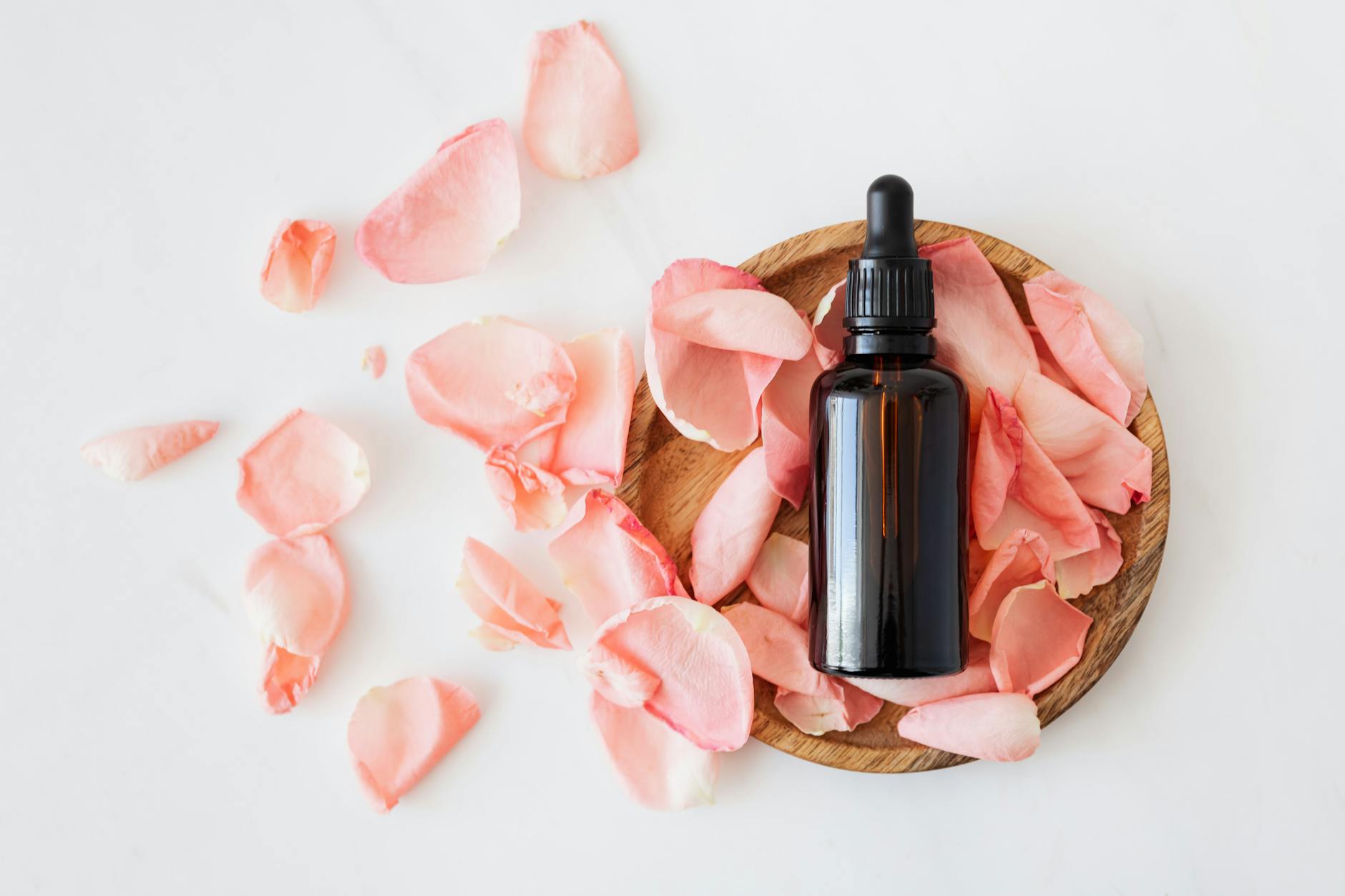 Photo by Karolina Kaboompics
Photo by Karolina Kaboompics
Tea Tree Oil
Tea tree oil is a powerhouse when it comes to fighting blemishes. Its antibacterial qualities make it effective against acne-causing bacteria. Dab a tiny amount on a pimple to see a reduction in redness and swelling. However, because it is strong, it’s crucial to use it sparingly and in a diluted form.
Frankincense Oil
Worried about aging? Frankincense oil has you covered. This oil can reduce the appearance of wrinkles and help even out your skin tone. A few drops in your night cream can work wonders for a youthful glow.
Rosehip Oil
Rosehip oil is loaded with vitamin C, which is vital for your skin. It helps in reducing scars and fine lines. Incorporating rosehip oil into your daily routine can give you a smooth and radiant complexion over time.
Geranium Oil
If you have oily skin, geranium oil is your best friend. It helps in balancing oil production and keeps your skin looking fresh. Add it to a carrier oil and use it as a part of your daily skincare routine to see the benefits.
Neroli Oil
Neroli oil is famous for its ability to regenerate skin cells. It’s also loved for its wonderful fragrance, which can uplift your mood. Apply it with a carrier oil to benefit from its cell-renewing properties and delightful aroma.
Ylang Ylang Oil
Ylang ylang oil is excellent for those who suffer from oily skin. It helps in regulating oil production and has soothing properties to calm your skin. Just a few drops added to a moisturizer can help maintain balance.
Chamomile Oil
Chamomile oil is well-suited for sensitive skin. With its anti-inflammatory properties, it can reduce redness and irritation. It’s a gentle option that offers relief for various skin issues without causing further irritation.
Clary Sage Oil
For those dealing with hormonal acne, clary sage oil is a fantastic option. It helps in balancing hormones and can significantly benefit skin prone to breakouts. Add a few drops to your cleanser to help keep your skin clear.
Sandalwood Oil
Dealing with dry skin? Sandalwood oil can deeply moisturize your skin, making it soft and smooth. Use it in your nighttime routine to wake up with a hydrated and glowing face.
Incorporating these essential oils for skincare can greatly improve your skin’s health and appearance. Always remember to use them safely by diluting with carrier oils and doing a patch test first.
For more skincare tips and updates, sign up for our newsletter.
Dove Indulge Body Wash Warm Vanilla + Sweet Cream for Hydrated & Soft Skin 20 FO
$7.99 (as of January 27, 2026 18:36 GMT -04:00 – More infoProduct prices and availability are accurate as of the date/time indicated and are subject to change. Any price and availability information displayed on [relevant Amazon Site(s), as applicable] at the time of purchase will apply to the purchase of this product.)Paula’s Choice SKIN PERFECTING 2% BHA Liquid Exfoliant with Salicylic Acid, Facial Polish for Enlarged Pores, Wrinkles & Fine Lines, Suitable for Blackhead-Prone Skin, Fragrance-Free
$37.00 (as of January 27, 2026 18:36 GMT -04:00 – More infoProduct prices and availability are accurate as of the date/time indicated and are subject to change. Any price and availability information displayed on [relevant Amazon Site(s), as applicable] at the time of purchase will apply to the purchase of this product.)How to Use Essential Oils for Skincare Safely
Essential oils can do wonders for your skin, but using them correctly is key to getting the most benefit and avoiding irritation. Wondering how to use essential oils for skincare safely? Let’s dive into the guidelines that can help you make the most of these natural wonders.
Here's a table of the top 10 essential oils for skin, along with where to buy them online and a price comparison. Please note that prices may vary over time and depending on promotions or discounts.
| Essential Oil | Benefits for Skin | Where to Buy | Price Comparison |
|---|---|---|---|
| Lavender | Soothes, calms, promotes healing | Amazon, doTERRA, Young Living | $7-$30 for 15ml |
| Tea Tree | Antibacterial, anti-acne | iHerb, Plant Therapy, NOW Foods | $6-$25 for 15ml |
| Frankincense | Anti-aging, reduces scars | Rocky Mountain Oils, Edens Garden, Aura Cacia | $15-$65 for 15ml |
| Rose | Hydrating, anti-aging | Blooming Blends, Plant Therapy, Healing Solutions | $25-$100 for 5ml |
| Geranium | Balances oil production, anti-aging | Plant Therapy, NOW Foods, Aura Cacia | $10-$30 for 15ml |
| Helichrysum | Promotes cell regeneration, anti-aging | Rocky Mountain Oils, Plant Therapy, doTERRA | $30-$100 for 5ml |
| Chamomile | Soothes sensitive skin, anti-inflammatory | Mountain Rose Herbs, Plant Therapy, NOW Foods | $10-$40 for 15ml |
| Ylang Ylang | Balances sebum, promotes relaxation | Edens Garden, Plant Therapy, Rocky Mountain Oils | $8-$30 for 15ml |
| Sandalwood | Anti-aging, soothes irritation | doTERRA, Young Living, Plant Therapy | $30-$100 for 5ml |
| Carrot Seed | Rejuvenating, rich in antioxidants | Plant Therapy, Edens Garden, Healing Solutions | $10-$30 for 15ml |
Don’t wait to give your skin the care it deserves. Grab these essential oils now and see the difference for yourself!
Dilution Guidelines
When it comes to using essential oils on your skin, dilution is crucial. Essential oils are highly concentrated and can cause skin irritation or even burns if applied directly. Here’s how you can safely dilute these oils based on your skin type:

For Normal Skin
- Ratio: 2% dilution
- Mix: 12 drops of essential oil per ounce (30 ml) of carrier oil.
For Sensitive Skin
- Ratio: 1% dilution
- Mix: 6 drops of essential oil per ounce (30 ml) of carrier oil.
For Oily/Acne-Prone Skin
- Ratio: 1.5% dilution
- Mix: 9 drops of essential oil per ounce (30 ml) of carrier oil.
Carrier oils like jojoba, almond, and coconut are fantastic for dilution. For more detailed information on dilution ratios, check out this helpful guide on dilution.
Patch Testing
Before you start using a new essential oil on your skin, always do a patch test. This simple step can save you from unwanted reactions. But why is it so important?
How to Perform a Patch Test
- Prepare a Diluted Solution: Mix the essential oil with a carrier oil using the appropriate dilution ratio for your skin type.
- Apply to the Inner Forearm: Rub a small amount of the diluted solution onto your inner forearm.
- Wait and Observe: Leave the area uncovered and wait for 24 hours to see if any redness, itching, or irritation occurs.
If your skin shows any adverse reaction during the patch test, it’s best to avoid using that essential oil. Learn more about safe testing practices to protect your skin.
Want more tips on using essential oils safely? Sign up for our newsletter to get the latest skincare tips delivered straight to your inbox.
Incorporating Essential Oils into Your Skincare Routine
Essential oils can be a powerful addition to your skincare routine. They offer many benefits, from reducing inflammation to promoting hydration. However, it’s essential to know how to use them safely and effectively.
 Photo by Monstera Production
Photo by Monstera Production
Diluting the Oils
One of the first things to understand about using essential oils for skincare is the importance of dilution. Essential oils are highly concentrated and should never be applied directly to the skin. They must be diluted with a carrier oil to be safe and effective.
Some common carrier oils include:
- Coconut oil
- Jojoba oil
- Almond oil
- Olive oil
Mix a few drops of your chosen essential oil with a tablespoon of a carrier oil before applying it to your skin. This reduces the risk of irritation and sensitivity.
Patch Testing
Before you start using a new essential oil regularly, it’s important to conduct a patch test. This helps ensure that you don’t have an allergic reaction or sensitivity to the oil.
Here’s how to do a patch test:
- Mix one or two drops of the essential oil with a teaspoon of carrier oil.
- Apply a small amount to a patch of skin, like the inside of your wrist or elbow.
- Wait for 24 hours and check for any reactions, such as redness, itching, or swelling.
If you experience any adverse reactions, discontinue use immediately.
Layering and Mixing
You can layer essential oils in your skincare routine, but it must be done thoughtfully. Start with the lightest products (like toners) and work your way to the heaviest (like creams and oils).
- Morning Routine: After cleansing, you can add a few drops of an essential oil mixed with a lightweight carrier oil. Follow up with your daily moisturizer and sunscreen.
- Night Routine: After your serum, apply a blend of essential oil with a heavier carrier oil like coconut oil. This will allow the essential oils to work overnight while your skin heals and regenerates.
Avoid using too many oils simultaneously or mixing oils haphazardly, which could cause skin irritation or reduce the effectiveness of your other skincare products.
Understanding Your Skin Type
Different skin types react differently to essential oils. Understanding your skin type can help you choose the right oils and avoid potential issues.
- Dry Skin: Lavender and geranium oils are excellent for hydration.
- Oily Skin: Tea tree and lemon oils can help balance oil production.
- Sensitive Skin: Chamomile and sandalwood oils are soothing and reduce irritation.
Using the right essential oil for your skin type can make a significant difference in achieving desired results without causing harm.
Safety Precautions
While essential oils offer numerous benefits, they come with some safety precautions:
- Do not ingest: Essential oils are for external use only.
- Avoid contact with eyes: If essential oil gets into your eye, rinse thoroughly with water and seek medical attention if irritation persists.
- Pregnancy and children: Consult a healthcare provider before using essential oils if you are pregnant or using them on children.
For more detailed guidance on using essential oils safely, check out this comprehensive guide on safety practices.
Don’t miss out on the latest tips and updates on skincare! Sign up for our newsletter to get exclusive content delivered straight to your inbox.
Potential Risks and Considerations
When using essential oils for skincare, it’s important to be aware of potential risks and considerations. While these oils can provide numerous benefits, improper use can lead to adverse effects. Let’s explore some key points to keep in mind.
Skin Sensitivity and Allergic Reactions
One of the primary concerns with essential oils is skin sensitivity. Essential oils are highly concentrated, meaning they can cause irritation or allergic reactions.
- Patch Test: Always start with a patch test. Apply a small amount of the diluted oil on a small area of your skin, like your forearm, and wait for 24 hours to see if there is any reaction.
- Carrier Oils: Dilute essential oils with a carrier oil like coconut, jojoba, or almond oil to minimize irritation.
Read more on avoiding allergic reactions from Healthline.
Photosensitivity
Certain essential oils, especially citrus oils like lemon and bergamot, can make your skin more sensitive to sunlight. This condition is known as photosensitivity.
- Sun Exposure: If you apply these oils to your skin, avoid direct sunlight or tanning beds for at least 12-24 hours to prevent burns or blisters.
- Label Warnings: Always check labels for any warnings about photosensitivity.
Toxicity and Ingestion
Never ingest essential oils unless under the guidance of a healthcare professional. Many essential oils are toxic and can cause serious health issues if swallowed.
- Keep Away from Children: Store essential oils out of reach of children and pets.
- Proper Dilution: Ensure proper dilution and avoid using oils that have known toxic properties.
Learn more about the dangers of ingesting essential oils at Mayo Clinic.
Interactions with Medications
Essential oils can interact with medications, affecting their efficacy or causing unwanted side effects.
- Consult Your Doctor: If you are on medication, consult with your healthcare provider before incorporating essential oils into your skincare routine.
- Research: Certain oils like eucalyptus and lavender may interfere with specific medications. Do your research or seek professional advice.
Expiry and Quality
Using expired or poor-quality essential oils can also pose risks.
- Check Expiry Dates: Always check the expiration date on the bottle. Oils can lose their efficacy or become harmful over time.
- Purchase from Reputable Brands: Use oils from reputable brands that provide detailed information about purity and sourcing.
Safe Storage
Proper storage is crucial to maintaining the efficacy and safety of essential oils.
- Avoid Heat and Light: Store oils in a cool, dark place to preserve their quality.
- Sealed Containers: Use airtight containers to prevent oxidation.
By understanding these risks and taking the necessary precautions, you can safely enjoy the benefits of essential oils for skincare. If you want to stay updated with the latest tips on essential oils and skincare, make sure to sign up for our newsletter.

Now that you’re aware of the potential risks and considerations, it’s time to explore the best essential oils for your skincare routine!
Conclusion
Understanding the benefits and uses of essential oils for skincare can transform your beauty routine. Including these natural oils safely and effectively can help you achieve healthy, glowing skin.
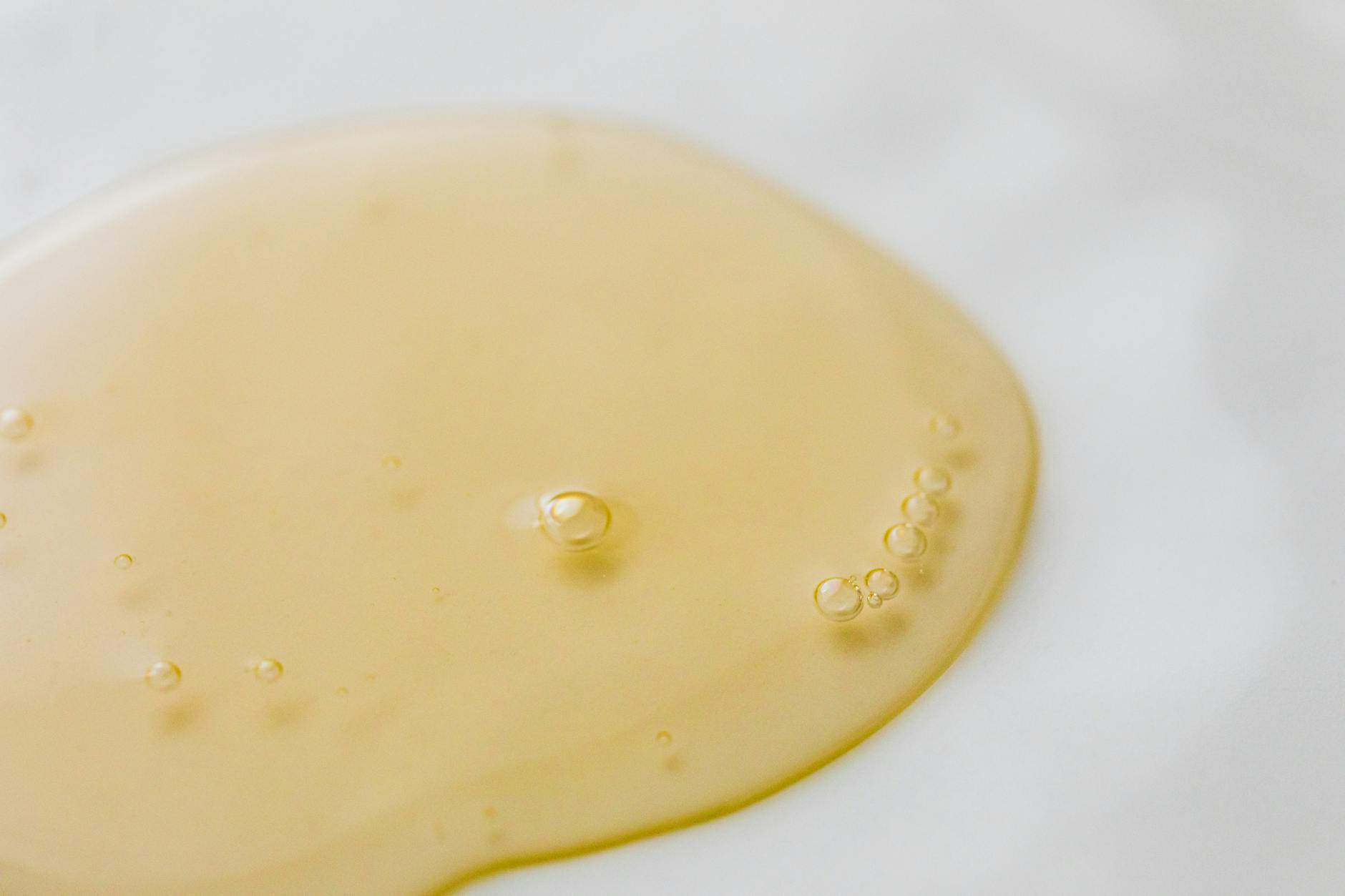 Photo by Karolina Kaboompics
Photo by Karolina Kaboompics
Benefits of Essential Oils for Skincare
Essential oils are not just fragrant; they offer a host of benefits for your skin. From reducing inflammation to fighting bacteria, these oils can address various skin issues.
- Antibacterial Properties: Many essential oils, like tea tree oil, have antibacterial properties that can help combat acne-causing bacteria.
- Anti-inflammatory Effects: Oils such as chamomile and lavender can soothe inflamed skin, making them ideal for sensitive skin types.
- Hydration: Essential oils like rosehip provide deep hydration, which is essential for maintaining healthy skin.
Tips for Using Essential Oils Safely
It’s crucial to use essential oils for skincare correctly to avoid adverse reactions.
- Dilute Properly: Always dilute essential oils with a carrier oil like jojoba or coconut oil to prevent skin irritation.
- Patch Test: Before applying the oil to your face, do a patch test on your wrist to check for any allergic reactions.
- Consult a Professional: If you have sensitive skin or specific skin conditions, consult with a dermatologist before incorporating new oils into your routine.
Final Thoughts
The key to reaping the benefits of essential oils lies in using them safely and appropriately. By following the tips and guidelines mentioned, you can effectively enhance your skincare regimen.
Did you find this guide helpful? Be sure to sign up for our newsletter to receive more skincare tips and updates!
FAQ – Best Essential Oils for Skin: Your Questions Answered
What are the top 10 essential oils for skin?
The top essential oils for skin include Lavender, Tea Tree, Rosehip, Frankincense, Chamomile, Geranium, Carrot Seed, Helichrysum, Jasmine, and Sandalwood oils. Each has unique benefits for different skin concerns.
How can Lavender oil benefit my skin?
Lavender oil is known for its calming properties. It’s great for reducing redness, soothing irritation, and even helping with acne due to its antibacterial effects.
Is Tea Tree oil safe for all skin types?
Tea Tree oil is effective for acne-prone skin but can be harsh on sensitive skin. It’s best to dilute it with a carrier oil and perform a patch test first.
What makes Rosehip oil a good choice for skin?
Rosehip oil is rich in vitamins A and C, promoting skin regeneration and improving texture. It’s excellent for reducing the appearance of scars and fine lines.
How does Frankincense oil help with aging skin?
Frankincense oil helps promote cell turnover and reduces the appearance of wrinkles. It’s also known to improve skin elasticity and tone.
Can Chamomile oil help with sensitive skin?
Yes, Chamomile oil is very soothing and anti-inflammatory, making it perfect for sensitive skin and conditions like eczema and rosacea.
What benefits does Geranium oil offer for the skin?
Geranium oil balances sebum production, making it ideal for both dry and oily skin. It also has antibacterial and anti-inflammatory properties.
How do I use Carrot Seed oil for my skin?
Carrot Seed oil is rich in antioxidants and vitamins. Use it diluted with a carrier oil to help rejuvenate the skin and improve its tone.
What is Helichrysum oil and its benefits for skin?
Helichrysum oil, also known as Immortelle, has powerful anti-inflammatory and regenerative properties. It’s great for healing scars and improving skin texture.
Why is Jasmine oil good for dry skin?
Jasmine oil is deeply hydrating and can help increase skin’s moisture content. It’s also known for its soothing, antiseptic properties.
How can Sandalwood oil benefit my complexion?
Sandalwood oil helps to even out skin tone and reduce the appearance of blemishes and scars. It has anti-inflammatory and antimicrobial properties.
Are there any risks associated with using essential oils on the skin?
Essential oils can cause irritation or allergic reactions, especially if not properly diluted. Always perform a patch test and consult with a dermatologist if you have any concerns.
How should I store my essential oils?
Store essential oils in a cool, dark place in tightly sealed bottles to maintain their efficacy. Keep them away from direct sunlight and heat.
Can I mix different essential oils for better results?
Yes, blending essential oils can enhance their benefits. However, make sure each oil is suitable for your skin type and dilute them properly with a carrier oil.


